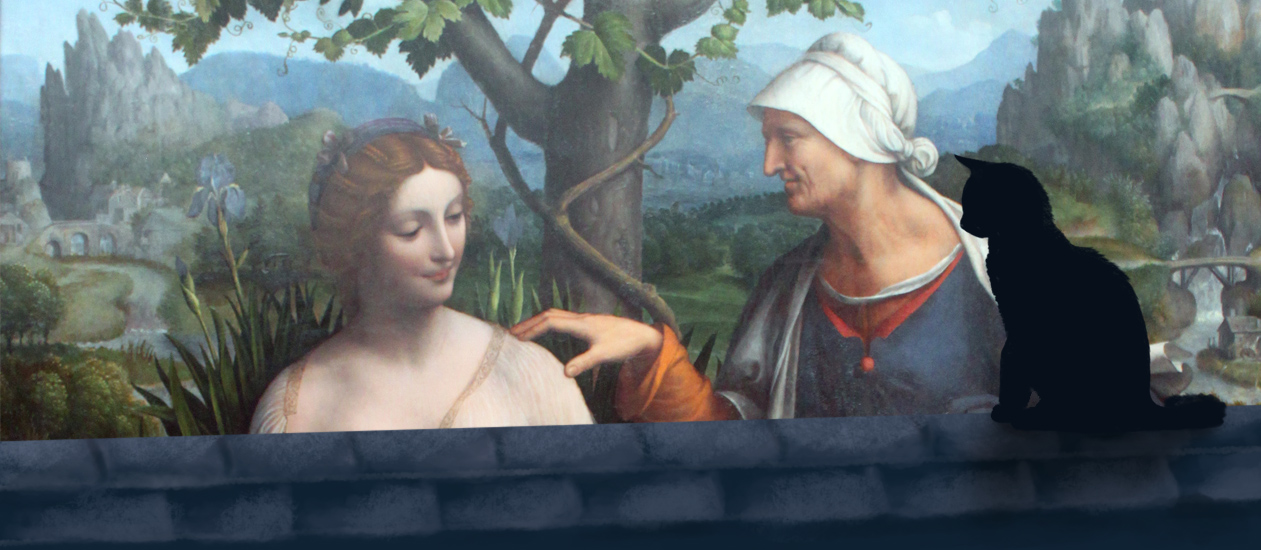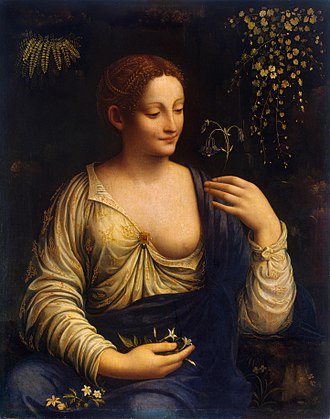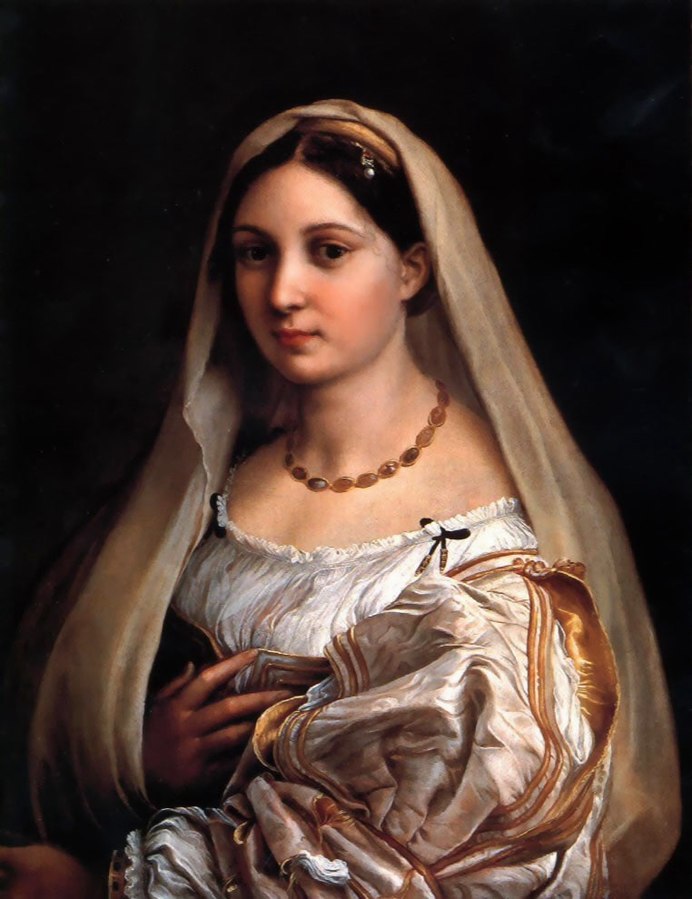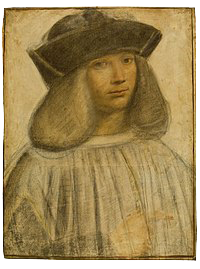Francesco Melzi ☠
Francesco Melzi
Leonardo carries an uncontrolled and passionate love for his pupils. I feel honoured to be among them, and to have been entrusted with his life's work. - Francesco Melzi, upon the death of Leonardo da Vinci, 1519
Francesco Melzi was a Lombardian painter who had been apprenticed to Leonardo da Vinci. Among all of da Vinci's pupils, he is the only one to have become a respected painter in his own right. Along with his painting, however, he is more famous for his and his wife's role in translating Babelian and bringing Europe into a new age of technology.
Apprentice of da Vinci
Early Life
Francesco was born into a noble family residing in Milan, the capital of Lombardy. His father, Geralamo Melzo, was a captain and an engineer in the Milanese militia. Francesco grew up in the Milanese court, where he received an expensive education. This included training in the arts, a subject in which he excelled at a young age.
Although he was a talented painter, he was expected to give up art upon reaching adulthood so that he could take up his political and social responsibilities as a member of a prominent family in the Milanese court. Francesco lamented this responsibility, for it seemed he had no choice but to abandon his true passion.
In 1505, Leonardo da Vinci returned to Milan and stayed with the Melzi family. While staying with them, Leonardo was enticed by Francesco's good nature and demonstrated painting skill and felt compelled to stay with the family longer to get to know him better.
One of the traits that most intrigued Leonardo was that Francesco was Sighted, making him able to see into the hidden world of ghosts and hear the voices of soul guides. Leonardo had long been fascinated by alzamastry and urged Francesco to tell him everything he saw and heard. Soon after meeting him, Leonardo invited Francesco to come to his workshop and learn from him along with his other apprentices. Though his parents were uncertain, Francesco's father acquiesced for such a renown artist as da Vinci.
Career
Francesco quickly rose to prominence among the apprentices and became Leonardo's favourite pupil. He was bright, well-mannered, and a talented painter.
Francesco was one of the first to see past his master's legendary fame and genius to realize how truly lonely he was, and felt compelled to care for him. Francesco and Leonardo became quite close, and Francesco later described himself and Leonardo as having a deep and familial affection for one another.
Francesco studied, worked, and travelled alongside Leonardo from Milan to Rome and later France. Along the way, he produced many great works of art, but his close connection to Leonardo meant he was constantly overshadowed and rarely received the praise he deserved.
Francesco was the only apprentice to stay with Leonardo until his death in 1519. Absent any other family, Francesco was Leonardo's de facto son and became executor of his will. He was tasked with gathering up his master's notebooks and compiling all the world he left behind.
Post-Leonardo
The Book
Although he never gained fame as a painter thanks to living in Leonardo's shadow, Francesco gained international renown for his work after Leonardo's death in translating and publishing Babelian. For most of history, the language that could be used to control pathstones was only known from tiny pieces and ancient relics. This changed in 1519, when Leonardo da Vinci's ghost returned to Francesco a few months after his death.
As a Sighted person, Francesco was able to see and speak with his previous master's ghost to learn the story. Leonardo claimed that he had followed his soul guide to Villars Cave in France, and stepped through the gateway to the afterlife. Instead of continuing on, however, he veered to the left and snuck into what he described as "God's study". He returned with a journal pilfered from the desk, written entirely in Babelian. This journal he entrusted to Francesco, advising him to decipher the language.
The Great Linguistic Project
Leonardo moved on, and translating the journal became Francesco's greatest project. Soon after Leonardo's death, Francesco returned to Milan and married the daughter of a noble family, Angiola di Landriani. Angiola was educated and took to the notebook with enthusiasm. Deciphering the language became a project of passion for the pair, though as time wore on, Francesco gave away more and more of the responsibility to his wife.
In 1522, the Catholic church learned of their project and ordered them to stop. Deciphering Babelian, also known as lingua dei for it was believed to be the language of God, was considered blasphemy. Francesco and Angiola fled Milan to the Republic of Venice. At a military checkpoint near the border, they were discovered and the bulk of the book was confiscated and burned.
With only a few sections left, they escaped to Venice and resumed their work, severely hindered by the loss of the book. After they had deciphered a fair amount of the language, Francesco left the details of the language to Angiola to work on while he turned his attention to using the new technology to try to make some of his master's invention ideas a reality.
Life in Swealand
Francesco and his wife happily lived and worked in Venice until 1538, when their patron Doge Andrea Gritti died. His successor, Pietro Landro, attempted to exert more control over them. Landro demanded they produce devices that had military or strategic use and continually threatened to turn them over to the Catholic church if they failed to do so.
In 1539, they once again fled their home with only the research notes they could carry. This time they fled north to Swealand, an Arbitrist country. The Arbitrium Church had a liberal stance on Babelian, and the king of Swealand welcomed them to his court. They remained there for the rest of their lives with the king as their patron.





